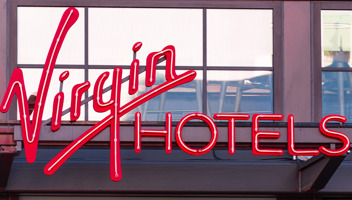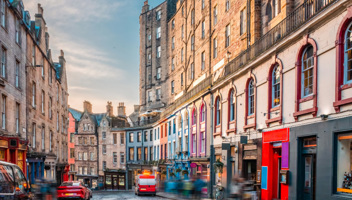Last week brought news that Amazon is due to open its first ‘Clicks and Mortar’ store in Scotland. The shop will be located in Edinburgh’s Waverley Mall.
This latest incarnation for Amazon will see it appear in physical form showcasing products from up-and-coming online brands. In effect, they are giving fledgling online sellers their first chance to sell from the high street.
Inevitably whatever Amazon does creates a level of excitement and anticipation. If it brings something new to the high street then that will be welcomed at a time of high anxiety for the retail trade generally. Allowing fresh young brands and producers to sell to the public in a high profile physical setting – where the public can see and touch products and interact with the brand – is also a huge benefit to those chosen for the project.
We do need to pause for breath however. Is Amazon, often referred to as “the destroyer of the high street”, now looking to be its saviour?
There has been much talk about rejuvenation of the high street. How do we bring back small independent traders? How do we bring forward local businesses, artisans/craft people or unique ideas that can create a buzz in our shopping areas? How to save retail property as an investment? Should we be relying on Amazon to address these issues?
News of the Clicks and Mortar store arrives at a time when the British Retail Consortium has organised a renewed campaign to target the Governments inaction on non-domestic rates. This story is far from fresh. We have been hearing the retail sector discuss the inadequacy of the rating system for years. Can anything be done to address this now that a new, supposedly ‘pro business’ Chancellor of the Exchequer is in post?
At a time when Amazon is throwing its hat in the ring for the title of champion of the high street the greatest favour it might be doing for the industry is to jolt the Government into re-focusing on what could be achieved if some high street fundamentals were re-thought. It could be rates or some other mechanism that leads to positivity for retailers, but it has to produce results – and quickly.
Written by
Related News, Insights & Events

Edinburgh’s Visitor Levy has passed – What happens now?
Last week, the City of Edinburgh Council (“CEC”) passed Scotland’s first Visitor Levy, using the powers available to it under the Visitor Levy (Scotland) Act 2024 (“the Act”).

Burness Paull advises on sale of former Virgin Hotel in Glasgow
21/01/2025
Burness Paull advised on the sale of the former Virgin Hotel in Glasgow to a Martin Property Group entity, which completed on 23 December 2024.

Scotland’s first Visitor Levy – How did we get here?
In the coming weeks, the City of Edinburgh Council (“CEC”) is set to introduce Scotland’s first Visitor Levy.





